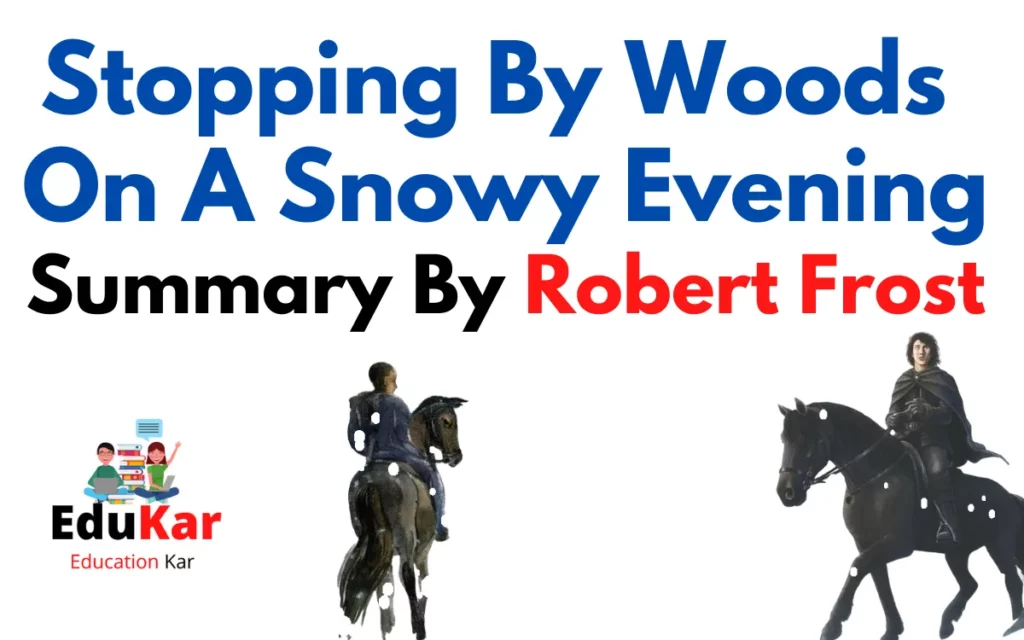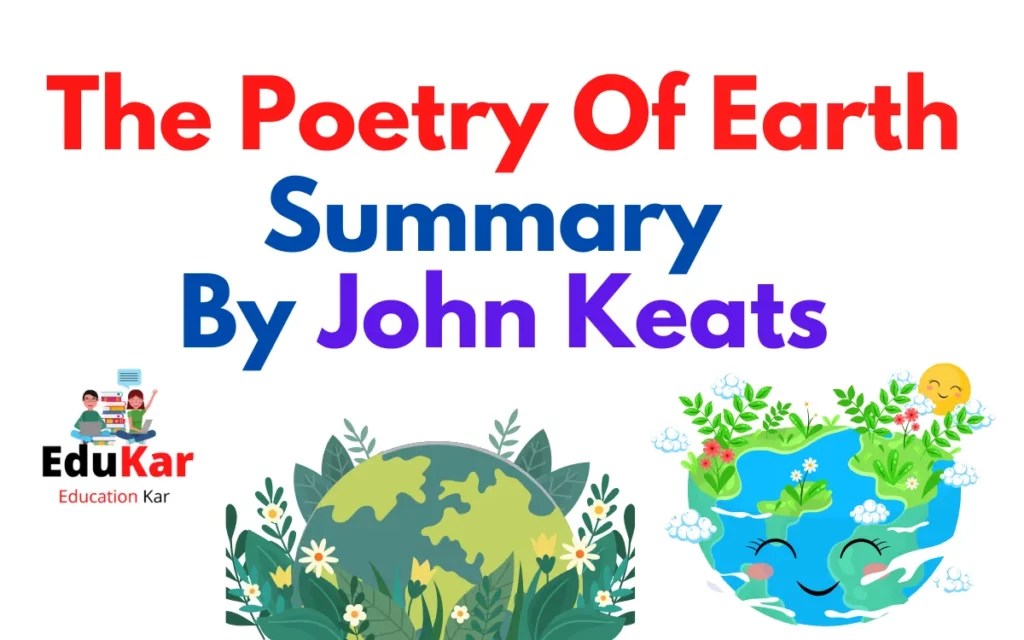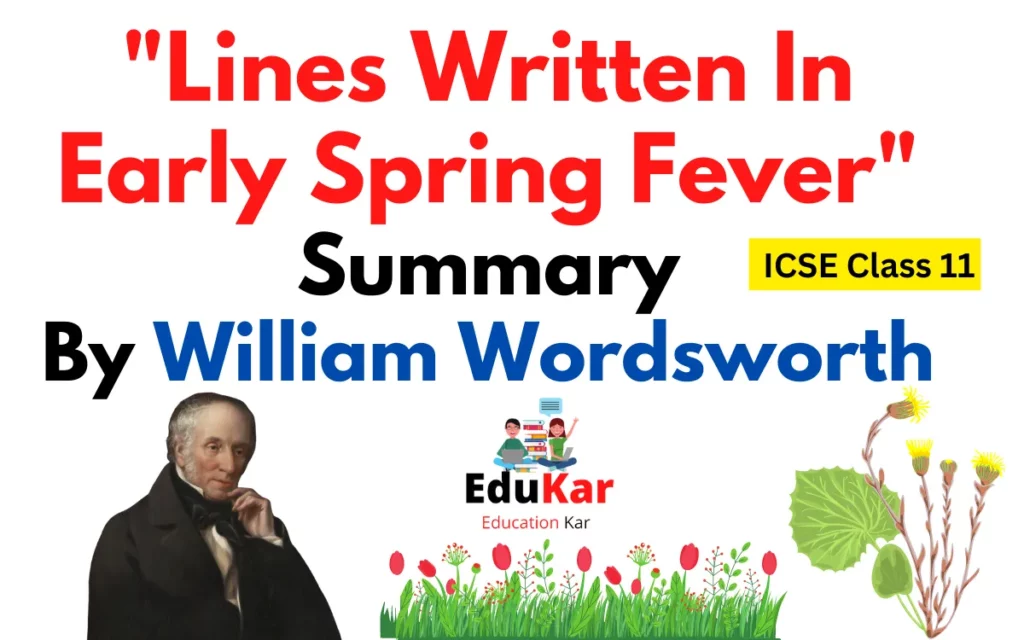Contents
| Name | Stopping By Woods On A Snowy Evening |
|---|---|
| Subject | English |
| Type | Poem |
| Author | Robert Frost |

Introduction
“Stopping by Woods on a Snowy Evening” is a classic poem written by Robert Frost, published in 1923 as part of his collection “New Hampshire.” This poem is considered to be one of Frost’s most popular and critically acclaimed works. It is known for its simple yet powerful language and imagery, which creates a vivid picture of a snowy woods and the speaker’s emotional response to it. The poem explores themes of nature, the human relationship with it, and the idea of death and the passage of time. It has been widely studied and interpreted by scholars, making it an important literary work in American poetry. The poem is a perfect representation of Frost’s style of writing that is both simple and profound. It is a must-read for anyone interested in American poetry and literature.
English Summary – “Stopping By Woods On A Snowy Evening”
“Stopping by Woods on a Snowy Evening” is a poem by Robert Frost, published in 1923. The poem describes a speaker who stops to admire the beauty of a snowy woods while on a journey. The speaker reflects on the peacefulness and stillness of the woods, as well as the contrast between the natural world and the human world.
The poem begins with the speaker describing the woods as “lovely, dark and deep,” and states that he has promises to keep, but is delaying his journey to enjoy the beauty of the woods. The speaker notes that the snow is “deep and crisp and even,” and that the woods are “lovely, dark and deep.” The speaker also observes that the woods are “filled with the sound of silence,” and that the only movement is that of the snow falling.
The speaker reflects on the contrast between the peacefulness of the woods and the busyness of the human world. He states that the woods are a “world of our own” and that the “other places” (the human world) are “around the bend.” He also notes that the woods are “someplace we have to get away to,” suggesting that the speaker finds solace and peace in the natural world.
The speaker also reflects on the idea of death and the passage of time. He states that the woods are “easy to get lost in” and that the speaker is “the only other person” in the woods. This suggests that the speaker is contemplating his own mortality and the fleeting nature of life.
The speaker’s journey is interrupted by the arrival of the owner of the woods, who asks him what he is doing there. The speaker explains that he is just admiring the beauty of the woods, and the owner tells him that he should be on his way. The speaker then leaves the woods and continues on his journey, with the memory of the woods still fresh in his mind.
In summary, “Stopping by Woods on a Snowy Evening” is a poem that explores the theme of nature and the human relationship with it. The speaker reflects on the peacefulness and stillness of the woods, the contrast between the natural world and the human world, and the idea of death and the passage of time. Through the use of imagery and metaphor, Frost creates a vivid and evocative picture of the woods and the speaker’s emotional response to them.
About The Author
Robert Frost was an American poet, born on March 26, 1874 in San Francisco, California. He is one of the most popular and critically acclaimed poets in American literature. He is known for his realistic depictions of rural life and his use of American colloquial speech. Frost’s poetry often deals with themes of nature, rural life, and the human condition. He was awarded four Pulitzer Prizes for Poetry, in 1924, 1931, 1937, and 1943.
Conclusion – “Stopping By Woods On A Snowy Evening”
“Stopping by Woods on a Snowy Evening” by Robert Frost is a contemplative and melancholic poem that explores the themes of nature, responsibility, and the passage of time. The speaker, who is out for a late-night horseback ride, stops to take in the beauty of the snowy woods. He is mesmerised by the serene and peaceful setting and is tempted to stay longer, but realises that he has obligations and responsibilities that he must attend to. The poem ends with the speaker reluctantly leaving the woods, with the implication that he will return again. Overall, the poem is a reflection on the human condition and our relationship with nature, and it highlights the importance of finding balance between our desires and our duties.







![The Old Man And The Sea Summary [Novel by Ernest Hemingway] The Old Man And The Sea Summary Novel by Ernest Hemingway](https://edukar.in/wp-content/uploads/2023/02/The-Old-Man-And-The-Sea-Summary-Novel-by-Ernest-Hemingway-1024x640.webp)








